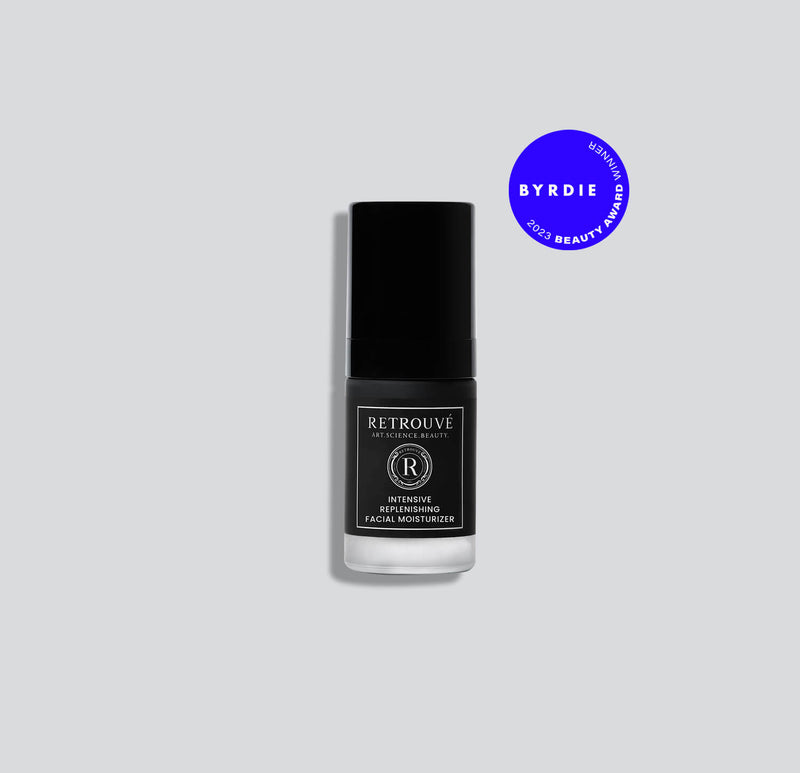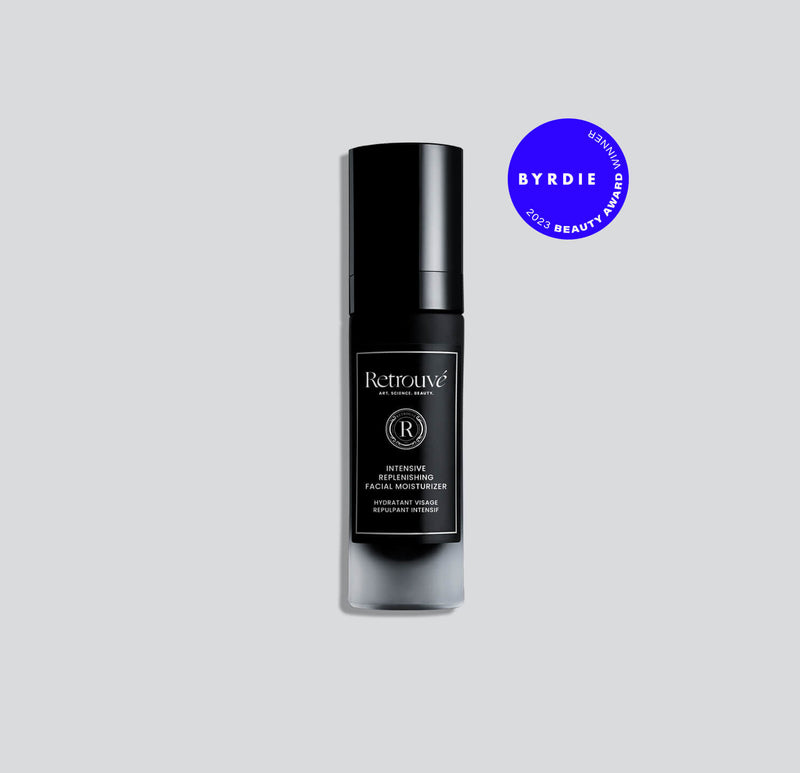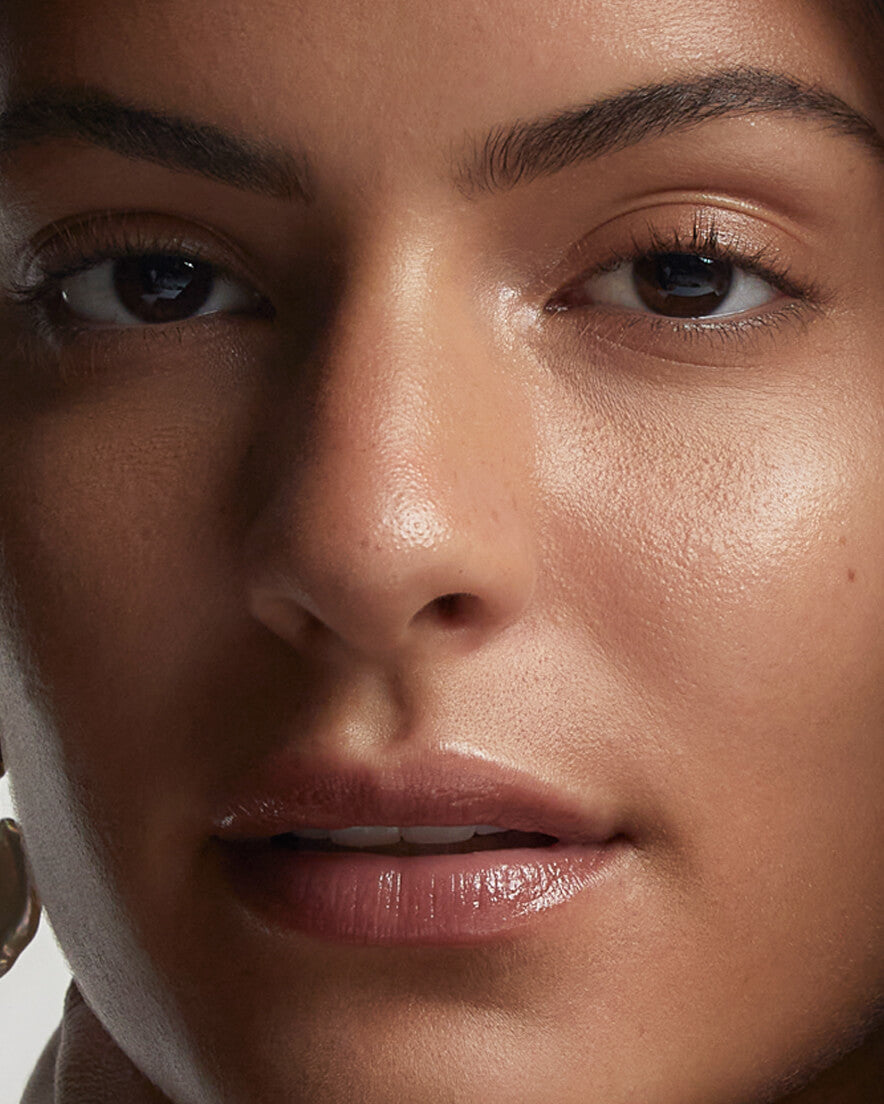The basic do’s and don’ts of winter skincare are repeated every season in beauty stories: switch to gentler, more hydrating formulas, apply moisturizer while your skin is still damp, don’t linger in a hot shower—you know the drill. So why is it that your skin can still look and feel dry even when you’re diligently following this cold-weather conduct? The culprits that can rob skin of moisture and leave it feeling tight, itchy, and generally uncomfortable are not always obvious, so we often don’t realize when our skin is vulnerable to dryness and irritation.
Our co-founder Jami is well versed in all the sneaky little factors that contribute to winter skin issues. Her husband Klaus
1. Don’t rely on water-based skincare when you’re out in the cold
If the thermometer is at or below freezing and you’re heading outdoors for an extended length of time, avoid using a water-based moisturizer or sunscreen beforehand. The water in the formula can freeze on your face, which is as unpleasant as it sounds. Not only can this irritate and dry out your skin, but it may tamper with your acid mantle, a thin film on the skin’s surface that helps keep moisture and nutrients in, and harmful agents like pollutants and bacteria out.
An oil-based product such our Intensive Replenishing Facial Moisturizer
2. Protect against windy conditions—even the indoor kind
Any time air is blasting on your face, whether it’s a wind chill of 20 degrees or heat cranking from your car’s air vents, it’s drying to your skin. Granted, cold air is harsher, but all that moisture-zapping indoor heat isn’t doing your complexion any favors, either. When you’re in the car, point the air vents down toward your legs so the heat isn’t blowing at your face, and do the same with space heaters in your home or office.
Keep in mind that any wind, even if it’s not biting cold, can dry out skin, so if you’re a runner or often outdoors in windy conditions, you want to help your skin retain moisture. While the age-old trick of patting an occlusive ointment on your cheeks will guard against windburn, it stays on the surface of skin, so it doesn’t
3. Ease up on exfoliation
A misconception once perpetuated by the skincare industry is that you need to rev up exfoliation in the winter when skin is drier and more likely to build up dead cells. Now we know that the short-term radiance that comes from lots of exfoliating can, over time, cause the skin to become thinner, which makes it appear older. Overuse of acids and exfoliants can also increase sensitivity, irritation, dryness
Our goal with Retrouvé is to give you the healthiest, best possible skin for life, which is why we create formulas that support gentle exfoliation, encourage balance and promote the skin’s own natural rejuvenating processes, such as our Conditioning Tonic with Chamomile. When skin is well-nourished and functioning at optimal level, it won’t have as much dry and dead skin buildup, so simply using a
4. Maximize hydration while you sleep
Skin loses more moisture at night than during the day, and overnight moisture loss increases in winter when the air is naturally dry and indoor heat makes it even drier. Having parched skin isn’t just uncomfortable—it’s also damaging. The skin repairs itself at night and needs ample nutrients and hydration to renew and replenish cells, so the more supple and nourished your skin is while you sleep, the healthier and more resilient it will be in the long run.
To help make this happen, run a humidifier in your bedroom at night (place it on your bedside table pointed towards your face) and smooth on products before bed that help reduce trans-epidermal water loss, which is when water evaporates from the skin. Our Retrouvé moisturizers are formulated with emollients and hydrators that reduce moisture loss and help skin hold in water better, including ceramides, vegan squalane, and vitamin-rich oils. Each moisturizer doubles as a rich overnight treatment if you slather on a little extra at bedtime.
5. Focus on formulations more than individual ingredients
The best ingredients in the world can’t do much if they don’t absorb into your skin. Hyaluronic acid, for example, gets a lot of buzz for being a great humectant that helps skin hold in moisture—but if it’s not formulated to penetrate the skin’s surface, it’s not very effective and can even block other ingredients it’s combined with from absorbing. To moisturize and protect your skin during the colder months, it’s less about which ingredients are in your products and more about how they’re formulated to work together and on your skin—which, unfortunately, can’t always be determined just by looking at an ingredient label if one is not a cosmetic chemist.
At Retrouvé, we choose ingredients that work synergistically, so that when they’re combined into one product, they do more for the skin than they would if applied alone. We use the best quality
Thanks!
You’ll receive an email when it’s back.
featured products
related
Skin Care
Jami’s Tips for Transitioning Skincare to Spring
Temperatures soar in spring, and with warmer weather comes clothing that exposes more skin, as well as an increased desire for one’s skin to look its best!
ReadProducts
Which Moisturizer Is Right For You?
Finding a moisturizer that suits your individual skincare needs and preferences can be tricky.
ReadProducts
Dry Skin? Try a Water-Free Formulation
Take a look at ingredient listings the next time you are shopping for skincare, and you will notice that “water/aqua” is usually listed at the top of th...
ReadSkin Care
Jami’s Skincare Routine for Long-Distance Flights
I fly many air miles a year; mainly between North America and Europe, and one thing is certain: Extended periods of time in flight are simply terrible f...
ReadSkin Care
Celebrating 10 Years with 10 Suggestions for Self-Care
Birthdays at my age are times when I definitely reflect more on age and aging. I personally endeavor to try to stay as healthy as I can holistically for...
ReadSkin Care
The Skin Barrier Explained
Our skin is our body's largest organ and serves as a vital barrier between the internal systems of our bodies and the outside world.
Read











